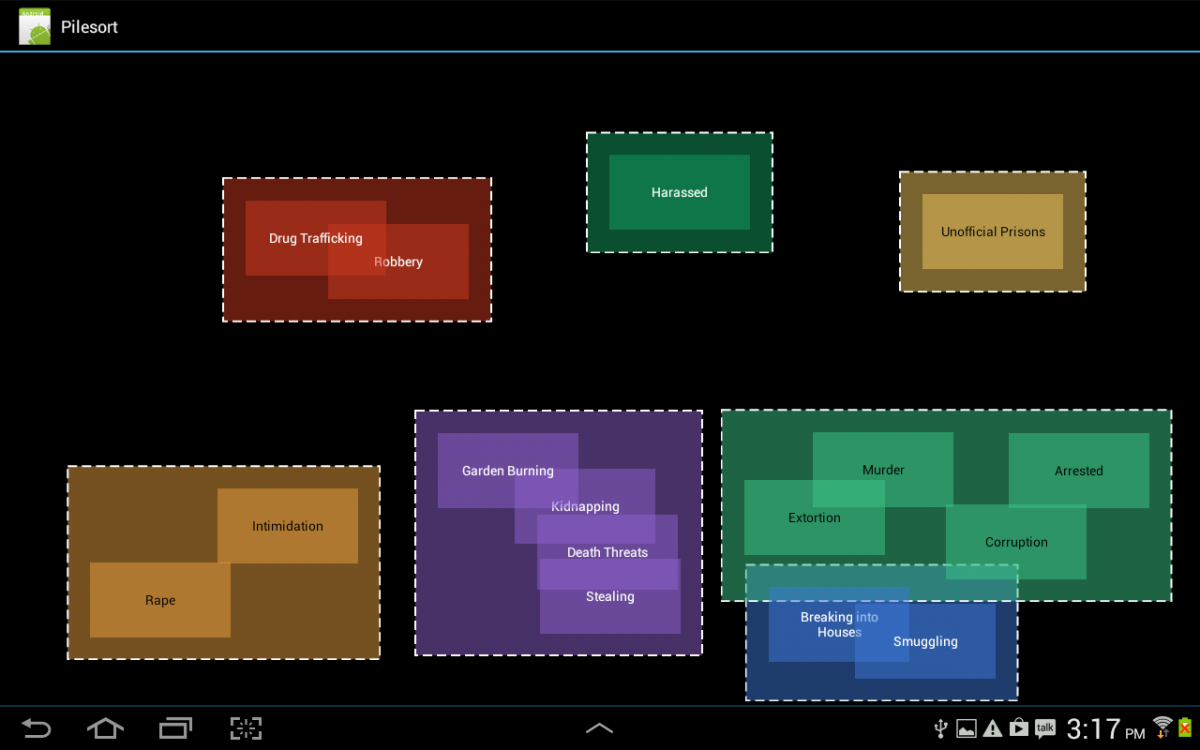Socio-cultural factors are increasingly recognized as critical to effective military operations. Collection and analysis of socio-cultural data can improve understanding of the operational environment, as well as guide personnel during interactions with local populations. Unfortunately, it can be very difficult to quickly collect this data. This becomes even more difficult in denied, conflict, or high risk areas, particularly when specialized resources are limited or not enough personnel are available for the task. To address these challenges, the US Army is seeking an integrated software tool to collect, manage, analyze, and visualize socio-cultural data in denied or high risk areas, one that could be used in both military and civilian research and training contexts.
The Charles River Analytics Solution
Scientists and software engineers at Charles River Analytics have designed and developed an integrated toolkit for collecting and analyzing socio-cultural network data. READ-IT is designed as a flexible, extensible system that can easily accommodate new data collection techniques and analysis methods. READ-IT allows researchers to move beyond the current practice of using a combination of different packages for cultural domain analysis, including Anthropac, a DOS-based cultural domain analysis package. READ-IT represents the evolution of Anthropac, moving its functionality into the modern digital age by integrating data collection design tools, network and cultural domain techniques, and powerful visualization and cloud-based storage and collaboration capabilities.
READ-IT consists of three main components: (1) a design and analysis desktop interface; (2) a centralized data server; and (3) Android mobile applications to provide users a variety of features. The READ-IT desktop interface includes a data collection designer to create collection tasks as well as analysis capabilities. The analysis tools allow for exploration and analysis of the data using a rich set of techniques and visualizations, such as tabular, network, and temporal views. The scalable READ-IT server is designed to store and share data collection designs and collection results, and supports data upload in the field. Finally, READ-IT includes Android apps that execute the data collection on handheld devices, in both connected and disconnected environments, and upload the results to the READ-IT server when connectivity is present.

READ-IT’s Android pile-sorting application enables users to flexibly and intuitively organize elements; in this example a user has grouped similar crime events across multiple, color coded piles that they have defined
The Benefit
The READ-IT toolkit provides significant improvements over the existing Anthropac software application, which is used by universities, corporations, and in human terrain teams training and operations. READ-IT can be generalized for other analytic and decision-making domains that require rapid capture and analysis of ethnographic data, such as state and local law enforcement. Charles River Analytics and our partner, University of Kentucky, performed a validity study of READ-IT, comparing it against traditional paper-based ethnographic collection methods. Our team found READ-IT is as efficient in capturing information as traditional methods with the added benefit of electronic data collection, which eliminates potential data transcription errors typically found in paper-based methods.
This material is based upon work supported by the U.S. Army Research Office, under Contract No. W911NF-13-C-0036. Any opinions, findings and conclusions or recommendations expressed in this material are those of the author(s) and do not necessarily reflect the views of the U.S. Army.
